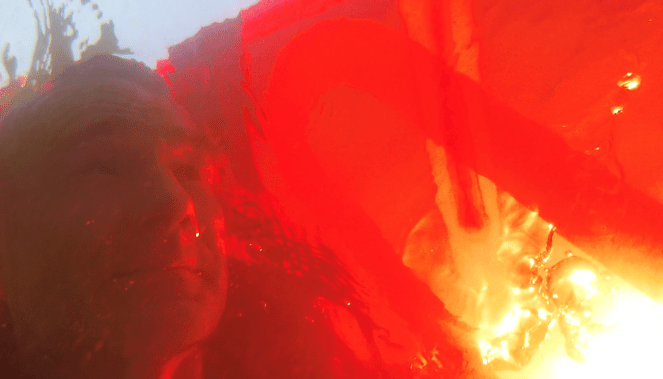These are two Facebook posts written by William Warmus posted 31 July and 1 August in the International Coral Reef Society FB group.
William writes:
On the last day of the warmest month in human history, we learn that the corals in Florida are dying before they even have time to bleach. The situation is so bad, the only solution is to remove the nursery coral from the ocean and keep it alive in tanks of cooler water under controlled laboratory conditions. This is the face of the climate crisis, when the only safe place for ocean life is on dry land.
“The coral didn’t even have a chance to bleach, it just died,” said Ms. Thomasson, who works for the Coral Restoration Foundation, a nonprofit group based in the Keys. The brown color was not healthy coral but dead tissue sloughing off the skeleton, almost as if it had melted.
“It just felt like, ‘Oh my God, we’re in the apocalypse,’” she said. “What’s happening?”
With climate change ravaging Florida’s beloved reef, people who’ve devoted their careers to restoring coral in the sea are now racing to get it out of the water, to tanks on land. They’re pushing through feelings of grief and fear over the future to save what genetic material and young corals they can. But in the background, an existential question looms: How can they restore reefs if the ocean is getting too hot for coral to live there?
Heat wave in the global ocean
While marine heat waves occur naturally, the eye-popping sea temperatures recorded off the Keys this month (one reading hit 101 degrees Fahrenheit, or just over 38 Celsius) have been made worse by global warming, according to the National Oceanic and Atmospheric Administration. The world’s oceans have absorbed 90 percent of the additional heat unleashed by people burning fossil fuels and razing forests. Currently, about 44 percent of the global ocean is in a heat wave.
The mass coral bleaching happening throughout the Keys is the most severe in the state’s history, Derek Manzello, the coordinator of NOAA’s Coral Reef Watch program, said. Surveys over the next few months are needed to understand how much coral has died.
“I fear for the worst,” he said.”
“Scientists are already calculating that July 2023 will be the hottest month on record—and likely the warmest month that humanity has ever experienced.
Beyond 1,5 degrees global warming
The United Nations’ World Meteorological Organization (WMO) and the European Union’s Copernicus Climate Change Service announced late last week that this month’s heat was beyond record-smashing. The planet’s temperature, they report, has been temporarily passing over the crucial threshold of limiting global warming to 2.7 degrees Fahrenheit (1.5 degrees Celsius) above pre-industrial temperatures.”
Experts now say they expect “complete mortality” of the bleached reefs in just a week, and worry reefs at greater depths could face the same fate if the unprecedented ocean warmth continues to escalate”
Dead in less than two weeks
“Temperatures at a reef managed by the Florida Aquarium were 91 degrees on July 6. The coral was completely healthy then, but when aquarium teams returned on July 19, all of the coral was bleached and an estimated 80% of it was dead. Another report from the Coral Restoration Foundation found “100% coral mortality” at Sombrero Reef off the coast of Marathon in the Florida Keys.”
“Andrew Ibarra was worried about his “favorite reef,” Cheeca Rocks, he told CNN. So he grabbed his snorkeling gear and his camera, hopped in his kayak and paddled the short mile and a half off Islamorada to the site.
“I found that the entire reef was bleached out,” said Ibarra, a NOAA monitoring specialist at Florida Keys National Marine Sanctuary. “Every single coral colony was exhibiting some form of paling, partial bleaching or full-out bleaching. Including recent mortality for some corals that have already died.”
“Scientists are just really scrambling to keep what we have alive. It’s pretty crazy that at this point the best solution we have is to take as much coral out of the ocean as we can,” O’Neil told CNN. “It’s shocking when you think about that.”
“Scientists are just really scrambling to keep what we have alive. It’s pretty crazy that at this point the best solution we have is to take as much coral out of the ocean as we can,” O’Neil told CNN. “It’s shocking when you think about that.”



